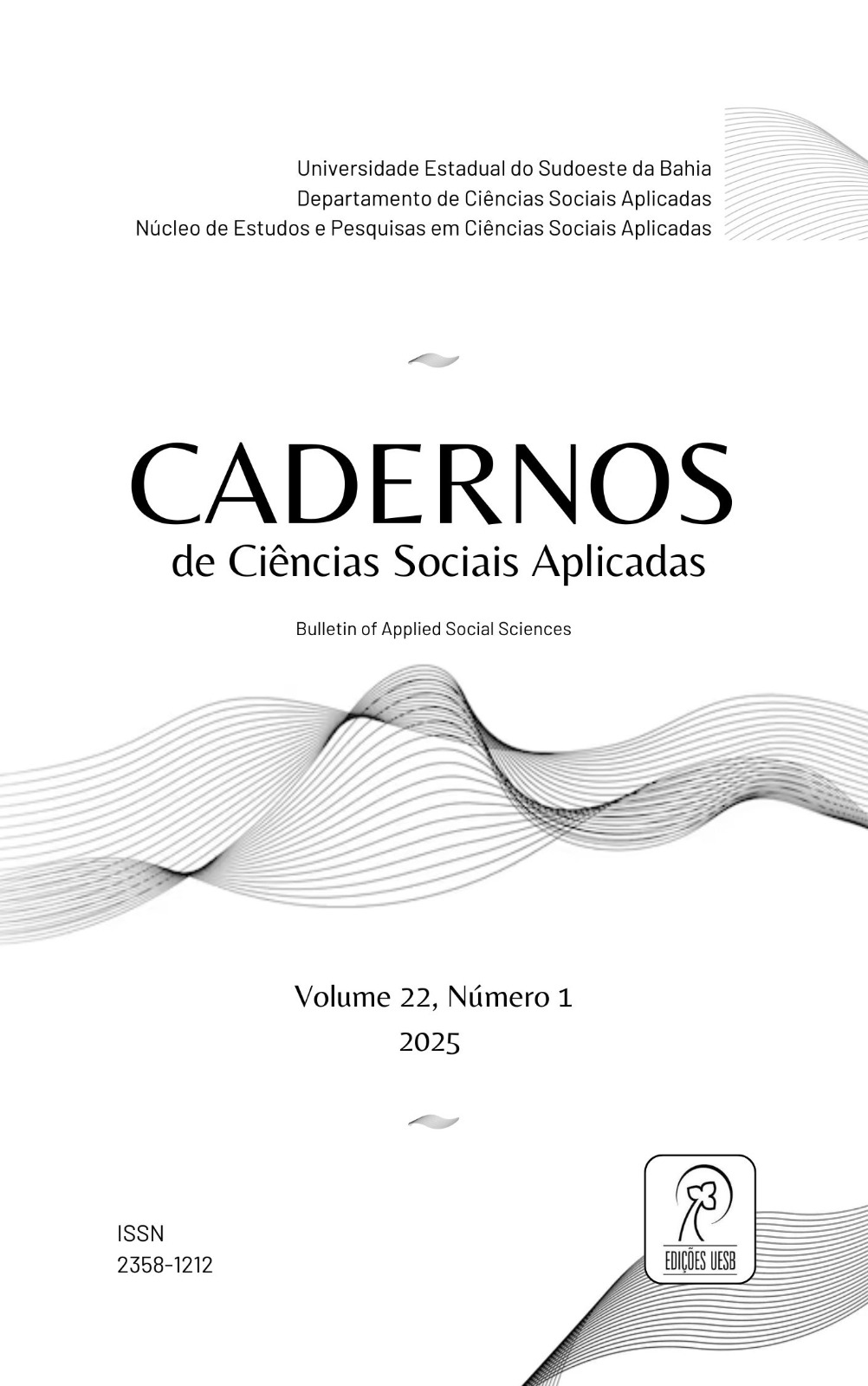As mulheres são mais propensas a apoiar os trabalhadores de aplicativos? Uma análise probabilística com base nas percepções dos brasileiros
DOI:
https://doi.org/10.22481/ccsa.v22i1.16915Keywords:
Delivery people. Gender. Platforms. Politics. Work.Abstract
The study investigates whether there is a relationship between being female and greater support for labor rights among digital platform workers in Brazil. The hypothesis tested is that, compared to men, women are more inclined to support these rights. The analysis was carried out using logistic regression models, considering control variables such as race, social class, education, region, and political orientation, extracted from a survey conducted with 2,005 Brazilians. The main independent variable was gender, while the dependent variables were support for rights such as paid vacations, 13th salary, and freedom to join unions. The results showed that, of the 12 models analyzed, 9 revealed that being female significantly increases the chances of supporting the granting of these rights. Rights that involve greater state intervention, such as paid vacations and minimum wage, had greater support. In contrast, rights associated with worker freedom, such as autonomy to define one's working hours, did not present statistical significance. It is concluded that female gender is consistently related to support for the expansion of labor rights, reflecting a more welfare-oriented stance among women, in line with the literature on gender political behavior.
Downloads
References
AMARAL, M. T. R. M.; BARRETO JUNIOR, J. O. Os Impactos da Economia 4.0 nas Relações De Trabalho: A Uberização na Perspectiva Do Superior Tribunal De Justiça (Stj) E Do Tribunal Superior Do Trabalho (Tst). In: ARAÚJO, F. M; SALDANHA, A. C. B. G.; AMARAL, M. T. R. M.. (Org.). O Direito e as Novas Tecnologias na Sociedade da Informação. 1ed.: Dialética, 2021, v. 1, p. 309-327.
BARNES, T. D.; CASSESE, E. C. American Party Women: A Look at the Gender Gap within Parties. Political Research Quarterly, 70(1), 127-141. 2017. Disponível em: https://doi.org/10.1177/1065912916675738. Acesso em: 20 ago. 2024.
BARROS, D. M. D. Mulheres da geração Z lideram adesão a ideias progressistas no Brasil. Revista Veja. 15 de março de 2024. Disponível em: https://veja.abril.com.br/comportamento/mulheres-da-geracao-z-lideram-adesao-a-ideias-progressistas-no-brasil. Acesso em: 20 ago. 2024.
CARROL, S. “Voting Choices: Meet You at the Gender Gap.” In Gender and Elections: Shaping the Future of American Politics. Fox Richard, 74–96. Cambridge: Cambridge University Press. 2006.
EAGLY, A. H.; DIEKMAN, A. B.; JOHANNESEN-SCHMIDT, M. C.; KOENIG, A. M. Gender gaps in sociopolitical attitudes: A social psychological analysis. Journal of Personality and Social Psychology, 87(6), 796-816. 2004. Disponível em: https://www.ipr.northwestern.edu/documents/working-papers/2003/IPR-WP-03-15.pdf. Acesso em: 3 set. 2024.
HIGIDO, J. STF tem maioria pela repercussão geral de caso sobre vínculo entre motorista e app. Em Consultor Jurídico. 28 de fevereiro de 2024. Disponível em:
Xhttps://www.conjur.com.br/2024-fev-28/stf-tem-maioria-pela-repercussao-geral-de-caso-sobre-vinculo-entre-motorista-e-app/. Acesso em: 21 ago. 2024.
HUDDY, L.; CASSESE, E. C.; LIZOTTE, M.-K. Gender, Public Opinion, and Political Reasoning. In The Oxford Handbook of American Public Opinion and the Media. Oxford University Press: 2008.
INGLEHART, R., & NORRIS, P. Rising Tide: Gender Equality and Cultural Change Around the World. Cambridge University Press. 2003.
KELLSTEDT, Paul M; WHITTEN, Guy D. Fundamentos da Pesquisa em Ciência Política. Tradução de Lorena Barberia, Patrick Cunha Silva, e Gilmar Masiero. São Paulo: Blucher, 2015.
NICOLAU, Jairo. O Brasil dobrou à direita: uma radiografia da eleição de Bolsonaro em 2018. Editora Schwarcz-Companhia das Letras, 2020.
RUDMAN, L. A; GLICK, P. The social psychology of gender: How power and intimacy shape gender relations. The Guilford Press: 2008.
SHORROCKS, R. Cohort Change in Political Gender Gaps in Europe and Canada: The Role of Modernization. Politics & Society, 46(2), 135-175. 2018. Disponível em: https://doi.org/10.1177/0032329217751688. Acesso em: 20 ago. 2024.
SOUZA, L. S. O “BREQUE DOS APPS”: RESISTÊNCIA DOS ENTREGADORES DE APLICATIVOS À PRECARIZAÇÃO PLATAFORMIZADA. Temporalis, [S. l.], v. 23, n. 45, p. 201–216, 2023. DOI: 10.22422/temporalis.2023v23n45p201-216. Acesso em: 29 ago. 2024.
Downloads
Published
How to Cite
Issue
Section
License
Copyright (c) 2025 Cadernos de Ciências Sociais Aplicadas

This work is licensed under a Creative Commons Attribution 4.0 International License.












